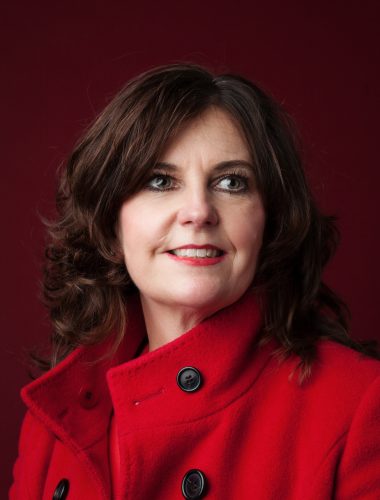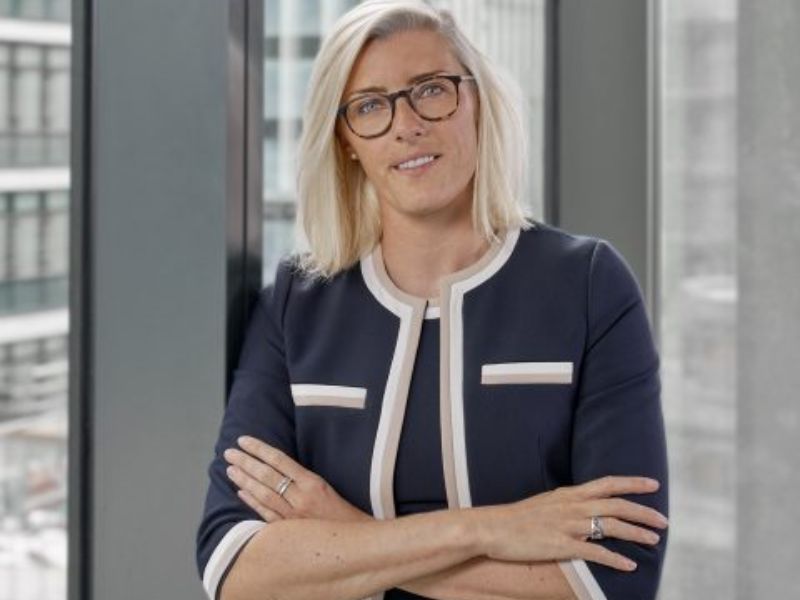 Professor Jane Turner OBE is Pro Vice-Chancellor at Teesside University, responsible for the Enterprise and Business Engagement Strategy.
Professor Jane Turner OBE is Pro Vice-Chancellor at Teesside University, responsible for the Enterprise and Business Engagement Strategy.
Prior to entering Higher Education, Jane Turner worked in the private sector in motor retailing and telecommunications. Jane is passionate about the North East having grown up here and considers herself to be in her ideal role, enabling her to collaborate with like-minded people to co-create a new future for the region. Jane is responsible for all knowledge exchange activities which deliver a significant income stream, student and graduate start-ups, strategic partnerships and the employability of Teesside University graduates.
Tell us a bit about yourself, your background and your current role (including as gender champion).
I am the Pro Vice-Chancellor for Enterprise and Business Engagement at Teesside University. My purpose is to develop and lead the enterprise and business engagement portfolio across the University, which involves ensuring a very proactive knowledge exchange environment, the development of strategic partnerships, the employability of our students and graduates, ensuring graduate level jobs are available and taking a collective role in the economic ecosystem of the Tees Valley. I am absolutely passionate about the Tees Valley region, which has some economic and social challenges but also some brilliant, and largely hidden, gems. As a result, it suffers from perception issues and I am very determined to play mine and the University’s role in ensuring the best possible future for current and future generations. I grew up on the Tees Valley and enjoyed a very happy childhood. I am therefore fully aware of the treasures that reside here; the people, the culture, the scenery, but above all the pioneering spirit and determination. I am the University gender champion and take a lead across the region in driving a much-needed shift in gender parity. I am a Board Director of the South Tees Development Corporation, which was created after the SSI closure in 2015 and is led by the Metro Mayor of the Tees Valley. This entity is responsible for the re- development and re-purposing of a 5,000-acre site that will make a significant shift in the trajectory of the Tees Valley. My father set up and ran a manufacturing business for 20+ years, so I was always very aware of the commitment, sacrifice and responsibility that running your own business brings. Business is clearly in my DNA, although the extent of that has only become apparent when looking back on my career to date.
Have you faced any major challenges along the way?
There have certainly been a few bumps in the road. Becoming a single mum at 20 was unquestionably a challenge and on reflection, a defining time for me as a young woman. At the age of 20, I was still very much discovering who I was and bringing a baby into the world was particularly daunting. Many people seemed to have a rather negative view on how my life would turn out, which added to my levels of self-doubt and lack of confidence. However, I have always been a very resolute individual and being ‘judged’ by others made me very determined to prove ‘them’ wrong. So, from 20-30 I was very focused on bringing up two children, studying part-time for a degree then masters’ qualification whilst working in various roles. I was determined to be a positive role-model for my children, ensuring that I had a good education and ultimately, a rewarding career, someone they could see as a positive role model. The most recent challenge was being diagnosed with ovarian cancer in September 2017. Having been an extremely fit and healthy women, the diagnosis came as a complete shock and I was absolutely devastated. Following radical and life-changing surgery, I experienced six months of chemotherapy, followed by six months of cancer treatment. Enduring chemo was the most challenging experience I have ever had. The physical and psychological impact was enormous. When you no longer resemble the person you knew, that takes some reconciling. On completion of the chemo, I enjoyed six months with no evidence of disease but just before Christmas found out that the cancer has returned and is no longer curable. News like this takes time to process and has been devastating for me and my family. However, it is making me very focused and determined to ‘be’ in the moment, to spend time with the people I love and to keep a level of perspective that as a society, I think we often struggle to maintain. I have continued to be at work throughout the whole process as work is basically my ‘oxygen’.
What has been your biggest achievement to date? What is your next challenge/challenges and what are you hoping to personally achieve in the future?
Achieving a Professional Doctorate in 2013 and being awarded an OBE in the Queen’s Birthday Honours List in 2017 for Services to Business. I still can’t quite believe that actually happened to me. My current challenge is in relation to my cancer diagnosis and ensuring that I can be here for as long as possible. I have a lot that I still want to achieve. In particular, continuing the work on gender parity, disrupting the deeply entrenched social norms and playing a key role in the economic and social prosperity of the Tees Valley region.
What do you want to see happen within the next five years when it comes to diversity, and why is gender parity so important?
We absolutely require a significant shift in attitudes and beliefs (stereotypes, gender norms, call them what you will) regarding the role of women. Our cultural attitudes play a strong role in influencing the status of women in society and work and these attitudes, among both men and women, shape the level of gender parity considered appropriate or desirable within each society. So, I want to continue to see greater presentation and transparency of data and identifiable and measurable actions. From a regional perspective, I also propose that our collective purpose and moral responsibility has to be to create a better future for young girls and women. To come together to question, challenge and disrupt the status quo, the gender norms, the attitudes, the stereotypes. Gender parity is not only a pressing moral and social issue but also a critical economic challenge. If women – who account for half the world’s population – do not achieve their full economic potential, the global economy will suffer.
Did you ever sit down and plan your career, and what did that look like? How do you feel about mentoring? Have you mentored anyone or are you someone’s mentee?
My careers advice at school was somewhat lacking and I never had a definitive career plan, far from it. I was rather in awe of peers who appeared to have very defined ideas of what they wanted to become. I am therefore very involved in ensuring that schools have access to good careers advice and meaningful interactions with employers. Mentoring in the true sense of the word can be a very powerful intervention. Having access to a positive role model who can share experiences and ‘coach’ rather than ‘tell’ can be particularly empowering. I have mentored many people over the years and always seek to combine a coaching and mentoring approach, sharing my experiences whilst believing that the answers also lie within a person.
WeAreTheCity has a back catalogue of thousands of Inspirational Woman interviews, including Cherie Blair, Paula Radcliffe MBE, Caprice Bourret, Anna Williamson and many more. You can read about all our amazing women here.








